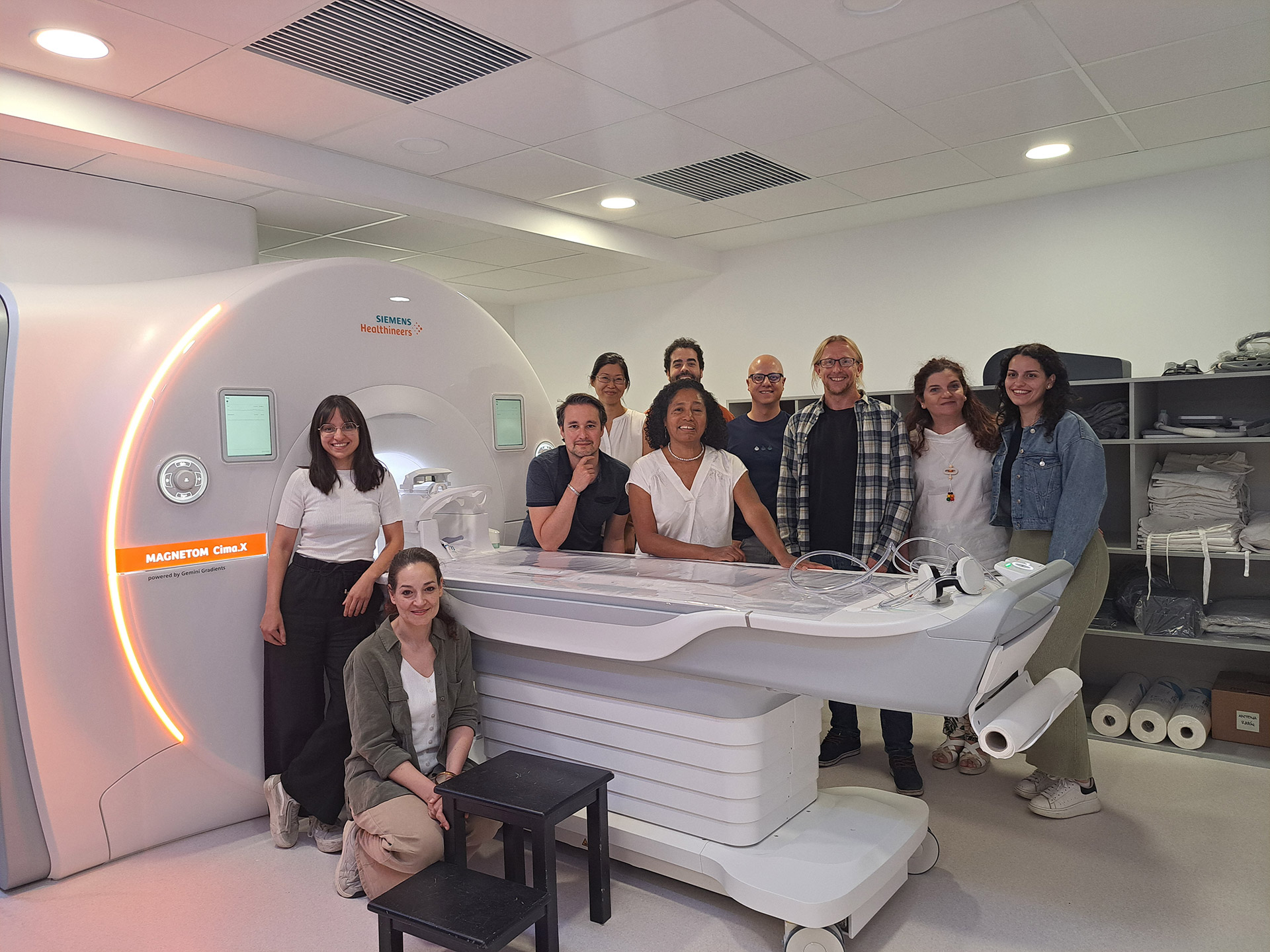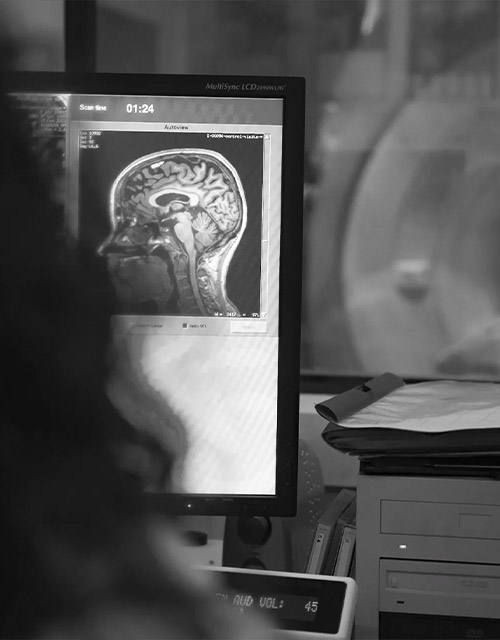
Knowledge of the morphological variations that occur in brain structure throughout life is essential to assess the corresponding pathological changes that occur in neurodegenerative diseases. Currently, neuroimaging techniques in any of their forms and in combination constitute one of the areas of greatest progress in the knowledge of different aspects of Alzheimer's disease and other neurodegenerative pathologies: aetiological diagnosis, early and differential diagnosis, functioning of brain areas, metabolism, neurotransmission.
In this sense, neuroimaging techniques, such as Magnetic Resonance Imaging (MRI), have allowed important advances in the understanding of age-related brain changes. MRI is a non-invasive tool that allows the study of normal ageing of individuals at different points in their lives. However, conventional MRI techniques are unable to detect and quantify age-dependent microstructural changes that have been described in post-mortem studies of brain tissue.
For this reason, the Neuroimaging Platform has, since May 2024, a new SIEMENS MAGNETOM Cima.X magnetic resonance equipment. This equipment, scheduled for commissioning at the end of June, is Siemens' most powerful 3T MRI device to date. Its Gemini Gradient design offers unprecedented performance for brain imaging techniques, combining superior image sharpness, speed and ease of use. It also takes advantage of Deep Resolve deep learning image reconstruction technology.
The CIEN Neuroimaging Platform has, thanks to the generous donation of the Reina Sofia Foundation, this advanced Siemens Cima.X 3T MRI scanner. Equipped with a 200 mT/m gradient, it provides unparalleled imaging capabilities. For advanced neuroimaging analyses requiring high computational performance, the Neuroimaging Platform has a high-performance computing cluster. This cluster is equipped with all the hardware and software resources needed to conduct cutting-edge research, including common programming platforms such as Matlab, Python and R, and several specialised software packages for multimodal neuroimaging data analysis, such as SPM, Freesurfer and FSL.


The Neuroimaging Platform team, led by Dr Michel Grothe (PhD in Clinical Neuroscience), has a multidisciplinary character and is composed of the following professionals:
PhD in Clinical Neuroscience. PI and team leader.
PhD in Clinical Research in Medicine. Degree in Physics, expert in Neuroimaging. | Post-doctoral researcher
PhD in Radiological Imaging. Degree in Psychology. Post-doctoral researcher.
Graduate in Psychology, specialist in Neurosciences | Pre-doctoral Researcher
Graduate in Psychology, specialising in Neurosciences | Pre-doctoral Researcher
Coordinator. Radiodiagnostic Technician. Graduate in Radiology.
Senior technician in Diagnostic Imaging
Senior Diagnostic Imaging Technician. Graduate in Psychology.
Higher University Technician in Radiology and Imaging.
Higher Technician in Diagnostic Imaging
Neuroimaging Platform Secretary
Neuroimaging Platform Secretary
in neuroimaging in the field of neurodegenerative diseases with special interest in AD and other related dementias.
images using state-of-the-art techniques to investigate brain changes in ageing and dementias in greater detail and resolution.
techniques related to neurodegenerative diseases.related to neurodegenerative diseases.